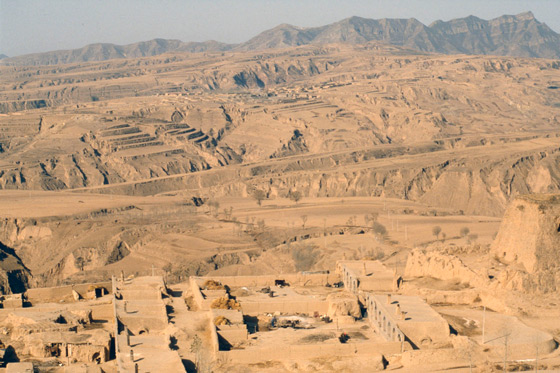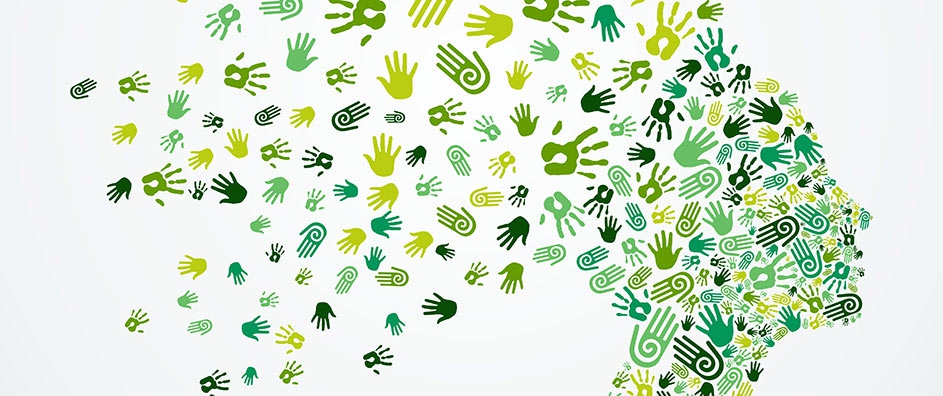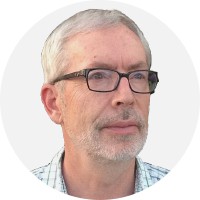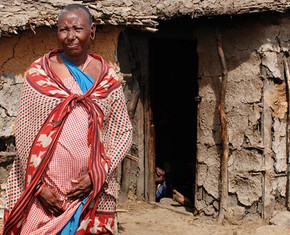The views expressed in our content reflect individual perspectives and do not represent the authoritative views of the Baha'i Faith.
Feeling despondent about the state of the planet? Here’s an antidote: Watch John Liu’s remarkable documentary film, Hope in a Changing Climate below:
In this series of articles, I argue that, despite a flood of bad news about the state of the physical environment, we can build a sustainable civilization. Liu’s film proves that people can make it possible to change the headlines.
Hope in a Changing Climate documents a remarkable project to restore the cradle of Chinese civilization, the once-fertile, France-sized Loess Plateau. Among the most eroded area in the world, the land is largely ruined. Consequently, many of its 50 million inhabitants face severe poverty. The impact of the ecological catastrophe has spread well beyond the region: at times, huge dust storms transport eroded soil as far as Tokyo and Taipei; at others, rains wash away the soil and flood the Yellow River, wreaking havoc downstream.
The winds of change are now transforming the region, long called “China’s Sorrow.” In 2005, China, supported by the World Bank, completed the largest watershed restoration project in world history on the upper banks of the Yellow River. The little-known, $500 million enterprise transformed 35,000km2 (roughly the area of Taiwan) of the 640,000km2 plateau from dusty wasteland to productive farms, wetlands and forest.
John Liu’s films show parched landscapes completely denuded of plant cover and heavily eroded; exactly the same landscape is shown a decade later following ecological restoration, alive with productive fields and forests, with ponds and flowing streams. The jaw-dropping fades—from one decade to the next—prove without a doubt that we can create near-miraculous landscape transformations.
Importantly, restoring the ecological function of the landscape is also reviving the economy of the region.

Loess Plateau
Praised by a former World Bank president as “one of the best projects ever implemented in the world,” the dramatic changes made by the LPWRP prove the possibility of rehabilitating damaged ecosystems on a large scale. On an even larger scale, it offers a model for mitigating and adapting to climate change while reducing—even eliminating—abject poverty.
Filmmaker John Liu’s involvement in documenting land restoration in China and East Africa led him to reflect deeply on his learning. Ecosystems rarely become dysfunctional on their own, he observed; instead people disrupt them when they think the products and services extracted from ecosystems have greater value than their sustaining ecological functions. Valuing ecosystem function above production and consumption, and making this the basis of their economic approach, provides the rationale and impetus for stakeholders to mobilize to restore degraded land.
“We already have the knowledge necessary to do this and we certainly have the need given the enormous threat of climate change,” Liu says. “What the Chinese came to realize on the Loess Plateau that allowed them to take the crucial step toward restoration was the theoretical understanding that ‘Ecosystem function is vastly more valuable than the production and consumption of goods and services.’ This statement changes everything.”
This sophisticated thought–Ecosystem function first–can change the world, quite literally.
In fact, this observation puts me in mind of a statement once made by Abdu’l-Baha in Paris:
The reality of man is his thought, not his material body. The thought force and the animal force are partners. Although man is part of the animal creation, he possesses a power of thought superior to all other created beings. – Paris Talks, p. 18.
Human thought is such a powerful force that the way we focus our unique power shapes our reality. We can shape landscapes by the way we think about them. The thought that the physical world exists primarily to provide material goods and services for extraction and consumption by people engaged in a process of continuous economic expansion results in entire ecosystems being consumed. The ultimate outcome of this thought: a desert world and the eventual collapse of civilization.
In one beautiful prayer that Abdu’l-Baha provided us, he asks the creator to assist people to elevate their thoughts, to confer upon us “thoughts which may change this world into a rose garden through the outpourings of heavenly grace.”
This is not merely spiritual imagery. Liu’s film—among many other examples—shows that high-minded thoughts, when put into action, allow us to actually transform the physical environment.
The Global Partnership on Forest Landscape Restoration has formalized Liu’s observation on ecosystem function in its motto “Ideas Transform Landscapes.” The Partnership and similar organizations envision the application of this idea as the means for locally-based projects, put into place planet-wide, to restore billions of hectares of degraded land.
The American soil scientist Rattan Lal estimates about 3.5 billion hectares of land—an area comparable in size to Africa—have been denuded, eroded and desertified by people acting on erroneous thinking. Putting ecological function first, like the Chinese have done on the Loess Plateau, would allow us to gradually restore this land, adding to the planet’s biocapacity to support civilization.
This would be equivalent to adding a new continent to the planet. Now there’s a thought that could change the world.
















Comments
Sign in or create an account
Continue with Googleor